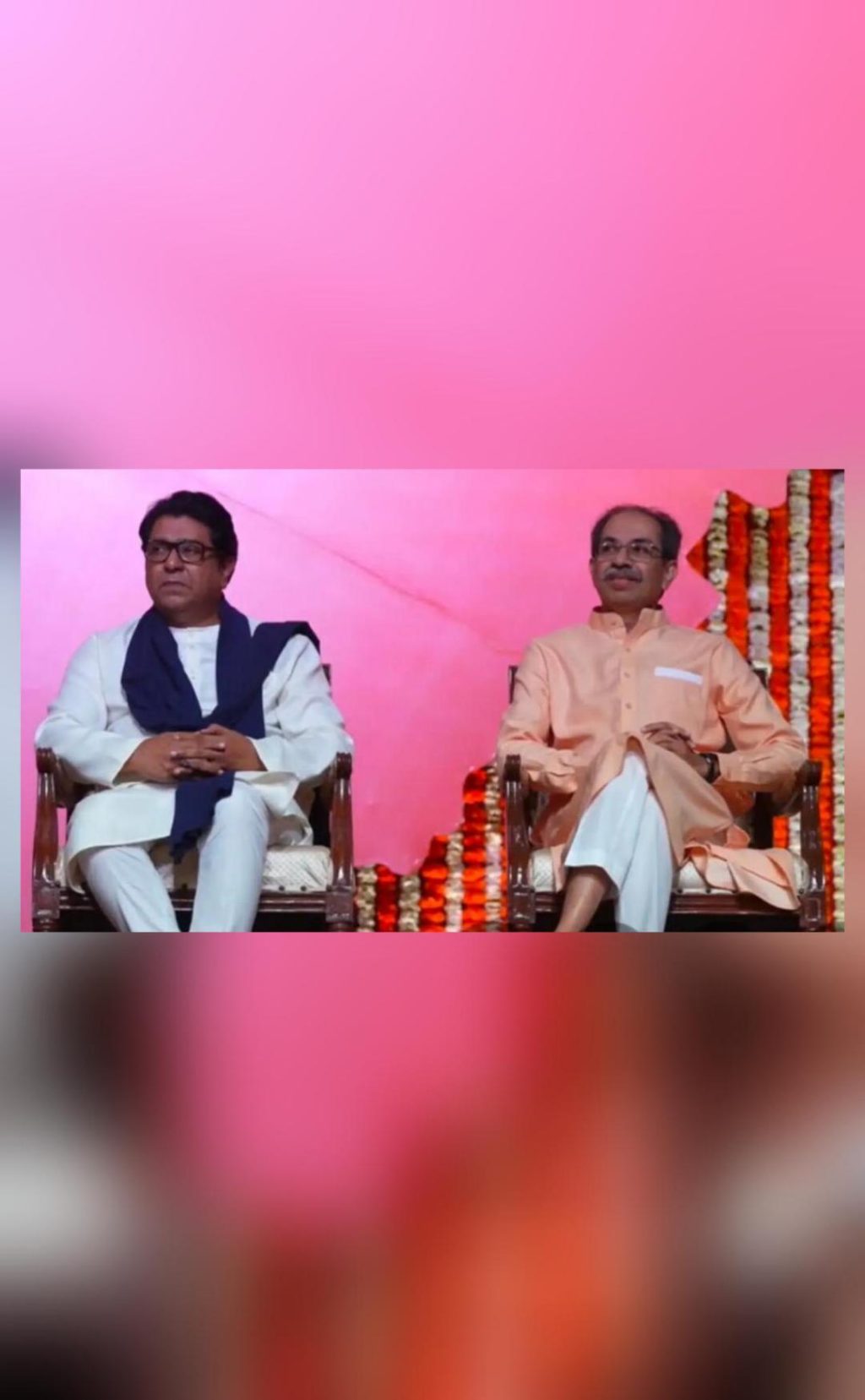
Neither Hindi nor Marathi, Uddhav & Raj just love family: BJP
In a recent development, Shiv Sena (UBT) chief Uddhav Thackeray and MNS president Raj Thackeray joined hands to celebrate the Maharashtra government’s rollback of the three-language policy. However, this unity was met with skepticism by the Bharatiya Janata Party (BJP), which claimed that the two leaders came together due to “political compulsion”. A BJP leader, Gaurav Vallabh, took to the media to express his views on this development.
According to Vallabh, the real intention behind this alliance is not to promote the interests of Maharashtra or its people, but rather to safeguard their own political interests. “Stop hiding behind Hindi and Marathi. You neither love Marathi nor Hindi, you just love your family,” he stated.
It’s worth noting that the three-language policy, which was introduced by the Maharashtra government, aims to promote the use of Hindi, Marathi, and English in schools. The policy has been a topic of controversy, with many opposing the inclusion of Hindi as a mandatory subject.
The rollback of the policy has been seen as a victory for the opposition parties, including the Shiv Sena (UBT) and the MNS, which have been vocal in their opposition to the policy. However, the BJP has been critical of the decision, claiming that it is a “backward step” that will hinder the progress of the state.
Vallabh’s comments have sparked a heated debate, with many questioning the motives behind the opposition to the policy. Some have argued that the inclusion of Hindi will help to promote national unity and cultural exchange, while others have expressed concerns about the impact it may have on the state’s cultural identity.
The debate surrounding the three-language policy is not new, and it has been a contentious issue in Maharashtra for some time. The state has a complex linguistic landscape, with multiple languages spoken by different communities. The introduction of Hindi as a mandatory subject has been seen as a way to promote national unity and cultural exchange, but it has also been criticized for being imposed on the state’s people.
In recent years, there has been a growing sense of regional identity and pride in Maharashtra, with many calling for greater recognition of the state’s unique cultural and linguistic heritage. The Shiv Sena (UBT) and the MNS have been at the forefront of this movement, using their respective platforms to promote the interests of the state and its people.
The alliance between Uddhav Thackeray and Raj Thackeray is seen as a significant development in this context, with many interpreting it as a move to strengthen their positions in the state’s political landscape. The two leaders have a long history of rivalry, but they have been working together to promote their shared interests in recent months.
The rollback of the three-language policy is seen as a major victory for the opposition parties, and it has given them a significant boost in the run-up to the 2024 state assembly elections. The BJP, on the other hand, has been critical of the decision, claiming that it is a “backward step” that will hinder the progress of the state.
In conclusion, the alliance between Uddhav Thackeray and Raj Thackeray is a significant development in the context of Maharashtra’s politics. While the two leaders have a long history of rivalry, their recent alliance has sparked a heated debate about the role of Hindi and Marathi in the state’s education system. The BJP’s criticism of the alliance has also raised questions about the motives behind the opposition to the three-language policy.
As the debate continues to rage on, one thing is clear: the people of Maharashtra will be watching closely to see how this development plays out in the coming months. Will the alliance between Uddhav Thackeray and Raj Thackeray prove to be a winning formula for the opposition parties, or will the BJP’s criticism of the alliance ultimately pay off?
Only time will tell, but one thing is certain: the politics of Maharashtra are never dull, and this latest development is sure to be a major talking point in the run-up to the 2024 state assembly elections.






